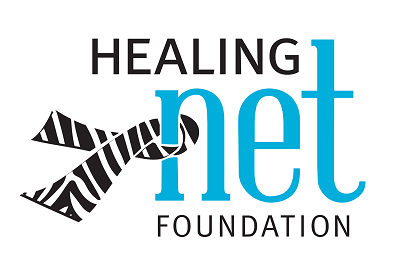Nutrition Tips for NET Patients 3--by Leigh Anne Burns, MS, LDN, RD
/INTRODUCTION by Cindy Lovelace “As Executive Director of the Healing NET Foundation, I have a unique understanding of the NET patient experience, since I am a patient myself. Sometimes, like most of us, I’m not so “patient” when it comes to my care. I want to feel well, and I want to enjoy life. When what I eat seems to be “messing with me”, I get impatient, grumpy, and frustrated.
Every time I listen to a presentation from Leigh Anne Burns, one of few nutritionists really educated and experienced with NET Patients, I pick up a new tip. I remember a conference where I heard I should eat smaller, more frequent meals, and even a tip to drink before and after I eat, but not during. She refers to these methods and the reasoning in her last Nutrition Blog for Healing NET.
What I learned the last time I heard Leigh Anne speak was that the pancreatic enzymes I’d been using might not be effective. (I had a distal after being diagnosed as a PNET in 2011) I learned they might not have enough of the right ingredients or the right balance to do the best job. A sure sign was some symptoms most of us can identify with—yep, the “poop”. I was worried that my cancer had progressed or I would have to completely stop eating some of my favorite foods. What I realized was that I might just have a malabsorption issue. I was not getting ENOUGH digestive enzymes to break down the foods, even though I kept to a low fat diet and rarely ate sugar. But, I had moved to over the counter enzymes because the prescription version I had been given initially gave me some unwanted side effects. As a result of what I learned from Leigh Anne, I researched and learned from other patients that there was a new prescription on the market and asked my physician about it. Since trying it, my symptoms have diminished, and I’m not having the side effects.
It’s a simple thing, but points out why nutrition is so important as a part of our care as “zebras’. In her final notes below for “Operation Preparation”, Leigh Anne mentions factors that can lead to malabsorption—
Even healthy fats such as fish oils in cold water fish (salmon and tuna), as well as plant-based fats such as avocados, olive oil, and canola oil can still be related to malabsorption.
It’s very important to read labels. That healthy reduced fat salad dressing you are using may have a serving of fat increased to 1 Tablespoon. Remember one serving of fats is 1 TEASPOON. Margarines or butter can have more than one serving as well.
Severe fat malabsorption can cause fat soluble vitamin deficiencies as well.
Ask your physician about pancreatic enzymes if you’ve had a dissection. Remember they are taken prior to meals, and it’s important to follow the instructions carefully.
HNF NOTE: Currently there are no national dietary guidelines developed specifically for NETs. On October 18 Leigh Anne will be conducting a Webcast “Nutrition for Neuroendocrine Tumors and Carcinoid Syndrome- Find foods you love!” You can register for this event at www.carcinoidwebseries.com, courtesy of Lexicon.





